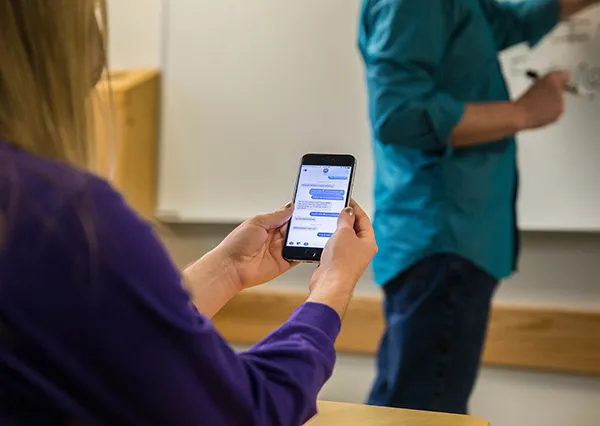
According to the French "European times" reported on December 11, 10, announced that French education minister brown cover for maintaining the order of school and ensuring the national health service, 2018 school year will ban the elementary and junior high school students take mobile phones to school.

So why did the department of education make such a decision?
Is it really good to ban students from carrying mobile phones?
"We are looking at issues and can take different forms at the implementation level," he said. Users may have education purpose and emergency needs, but in principle the phone should be limited. He added that several secondary schools had successfully implemented the ban. Specific measures are pending, but he said cell phone jammer could be used.
In addition to the school order framework, Mr. Brown stressed that the phone ban is also a "public health message that is good for the family" and is good for children. He warned parents not to let their children touch screens for long periods of time, especially before the age of seven. That was the promise of Mr Macron's presidential campaign.

- According to the 2015 Credoc survey, 80 percent of French teenagers are equipped with smartphones, compared with 20 percent in 2011.
- The general situation is that from the fourth grade of primary school, many students began to have mobile phones, since the children can learn from their own parents at this age, and parents believe that they can feel more comfortable with their mobile phones at any time.
- At the same time, the influence of mobile phones on the learning, thinking and analysis of teenagers, and even interference is a concern of the education community.
The teens who took part in the study took standardized tests to see if they were addicted to the Internet and smartphone. Participants in smartphone addiction admitted that the use of the Internet and smartphones interfered with their daily, social, sleep and work learning abilities. The teens also scored significantly higher on depression, anxiety, insomnia and impulsivity than the control group (scores did not indicate Internet addiction). The good news is that the proportion of brain chemicals in those addicted to mobile phones can return to near-normal levels after receiving cognitive behavioral therapy.

"Smartphones are like a virtual doll or lover, leaving it feeling painful and abandoned," says Laurent Karila, a medical expert and spokesman for the association for the rescue of addiction. This feeling is akin to a drug addict, and the fear of separation from the phone is a very real emotion. But at the international level, it is not yet recognized that "cell phone addiction" is a disease; By contrast, gambling addiction has been included as a mental illness.

But in reality, not only students, but many adults also rely on mobile phones
- So if you do not use special equipment to prohibit students from using mobile phones, students' learning will be greatly affected.
- The decision by the French Minister of Education to ban mobile phones for primary and lower secondary school students reflects growing concerns about the impact of smartphones on students' health and academic performance.
The main goal of the ban is to maintain discipline and order within educational institutions

With the widespread use of smartphones among students, schools face challenges in managing distractions and ensuring a focused learning environment. By banning mobile phones, educators aim to reduce distractions and improve students' concentration in class.
Beyond school premises, the ban is also a public health initiative aimed at addressing concerns about excessive screen time among children. Education Minister Brown stressed that prolonged exposure to screens can have adverse effects, especially for young children. By discouraging smartphone use, especially among primary school students, authorities aim to promote healthier lifestyles and reduce the risk of addiction and related mental health issues.

Research shows that the growing trend of adolescents' dependence on smartphones has adverse effects on all aspects of their lives, including social interactions, sleeping habits and academic performance. By implementing a mobile phone ban, schools aim to mitigate the negative impact of excessive smartphone use on students' health and educational outcomes.
Excessive dependence on smartphones has been linked to reduced cognitive abilities and academic performance among students. By limiting the use of mobile phones during school hours, educators seek to create an environment that is conducive to critical thinking, creativity and active participation in learning activities.

While a mobile phone ban is one way to address these issues, Education Minister Brown acknowledged the need for flexibility and consideration of alternative measures. This includes exploring the use of mobile phone jammers as a means of effectively enforcing the ban, while allowing for exceptions in emergencies or for specific educational purposes.







